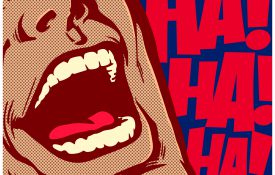-
Scientists say sorry, but speed reading doesn’t work
Business Insider: I'll be the first to admit it: My life would be a whole lot easier if I could speed read. Instead of spending an hour poring over a dense scientific paper I'm writing about, I'd spend just a few minutes and understand everything perfectly. Unfortunately, while there are plenty of businesses out there claiming they could teach me to do just that, a new study suggests those claims are basically bogus. For the study, published in Psychological Science in the Public Interest, researchers present a series of takedowns of different arguments put forth by proponents of speed reading. Read the whole story: Business Insider
-
Episode 677: The Experiment Experiment
NPR: A few years back, a famous psychologist published a series of studies that found people could predict the future — not all the time, but more often than if they were guessing by chance alone. The paper left psychologists with two options. "Either we have to conclude that ESP is true," says Brian Nosek, a psychologist at the University of Virginia, "or we have to change our beliefs about the right ways to do science." Read the whole story: NPR
-

The Energizing Effect of Humor
Humor may actually help people persevere in completing arduous tasks, researchers have found.
-
Headstrong
The Boston Globe: RESEARCH HAS SHOWN that the theoretical benefit of safety equipment can be much lower in reality because users feel more comfortable taking greater risks. In a new experiment, psychologists found that this effect may be even more deeply ingrained than we think. Read the whole story: The Boston Globe
-
Traditional Toys May Beat Gadgets in Language Development
The New York Times: Baby laptops, baby cellphones, talking farms — these are the whirring, whiz-bang toys of the moment, many of them marketed as tools to encourage babies’ language skills. But in the midst of the holiday season, a new study raises questions about whether such electronic playthings make it less likely that babies will engage in the verbal give-and-take with their parents that is so crucial to cognitive development. ... “When you put the gadgets and gizmos in, the parents stop talking,” said Kathy Hirsh-Pasek, a professor of psychology at Temple University who was not involved in the new study, but who has found similar effects with e-books and electronic shape-sorters.
-
Too Much TV And Chill Could Reduce Brain Power Over Time
NPR: When I kick back to watch a show, I tell myself I'm just going to watch one episode. But 45 minutes later, I'm watching another. And then another. For the rest of the day. There are a lot of things that TV and chilling can lead to, but among the less fun? Maybe more cognitive decline over time. Researchers at the University of California, San Francisco checked in with 3,247 people for 25 years, starting when they were young adults. Every five years, they asked participants to estimate how much TV they watched daily. Every two to five years, the researchers looked at how much physical exercise people got.

